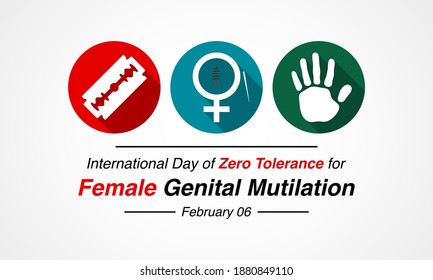A non governmental Organisation, Impact House Centre for Development Communication has called on Nigeria government to ensure the strict enforcement of the Violence Against Persons (Prohibition), Act 2015 in the country.
READ ALSO: Oyo: UNFPA Commemorates International day of Zero Tolerance for FGM
The organisation mrade the call in a press statement as part of efforts to commemorate the International Day of Zero Tolerance for Female Genital Mutilation, FGM.
The Executive Director, Mr. John Andah lamented the prevalent rate of FGM in the country, noting that Nigeria has a Sustainable Development Goal (SDG) 5 target of eliminating all harmful practices, including FGM, by 2030.
He said the country’s failure to strictly enforce the law banning FGM and other harmful practices against women and girls is emboldening many citizens to indulge in the acts.
“Also, the growing citizens’ distrust in governance in Nigeria means many, including communities, are not actively participating in efforts aimed at ending FGM and other harmful practices.
“In a 2022 report, the United Nations International Children’s Emergency Fund (UNICEF) revealed that the country had the third-highest number of women and girls who have experienced FGM worldwide, with an estimated 19.9 million survivors. One of the states in Nigeria where FGM still thrives despite its ban is Imo, with some grandmothers claiming that circumcision will help reduce promiscuity in children when they become adults.”
Mr Andah further stated that apart from the Nigeria Maputo Protocol Nigeria signed and ratified in 2003 and 2004 respectively, it’s also a signatory to other international conventions and norms such as the Convention on the Elimination of all Forms of Discrimination Against Women and the Solemn Declaration on Gender Equality in Africa.
“Still, FGM and other forms of abuse persist in the country. We find this trend worrisome and unacceptable. FGM is often deeply entrenched in cultural beliefs and practices that have been passed down through generations. In many communities, it is considered a rite of passage, symbolising purity, modesty, and the eligibility of women for marriage.
“Section six (two) of the VAPP Act criminalises and punishes anyone who performs or engages another to perform female circumcision or genital mutilation.”
According to him, the problem in Nigeria is not the availability of the legal instrument, but the enforcement of it.
He noted that in addition to addressing FGM in its National Health Policy 2016, Nigeria also adopted a standalone National Policy and Plan of Action for the Elimination of Female Genital Mutilation 2021–2025.
“But the government cannot do this alone. Citizens, including men and boys, must be actively involved in this fight to end FGM.
“So far, 35 Nigerian states have passed the VAPP Act or at least have legislation to protect women from GBV, except Kano State.”
This year, on the International Day of Zero Tolerance for FGM, the Impact House for Development Communication implore the following: Government at all levels to strictly enforce the provisions of the VAPP Act and promote transparency and accountability in all its dealings to earn public trust; Kano State House of Assembly to pass the VAPP bill; Police to empower their female officers to take the lead in strategies that are designed to counter FGM and other harmful practices against women and girls; Citizens and communities across the country to challenge the attitudes and behaviours caused by gender inequality that leads to FGM.
Mr. John Andah added that by strictly enforcing the VAPP Act, states in Nigeria can send a strong message that the government is committed to eradicating harmful practices and safeguarding the well-being of women and girls.
“But beyond enforcing the VAPP law, governments at all levels must get citizens actively involved in anti-FGM initiatives.”
He called on government to therefore build trust by promoting transparency and accountability and implementing policies that genuinely prioritise the well-being of the population, fostering a sense of unity and shared progress.


Comments are closed.